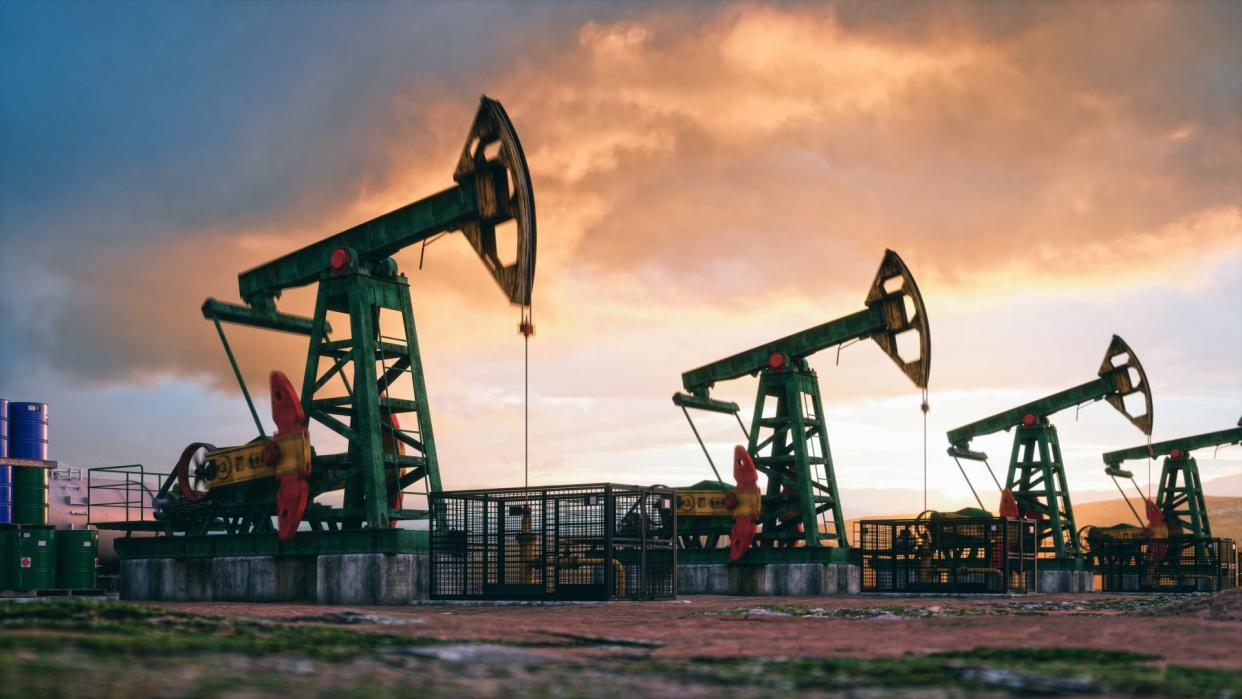OPEC’s Decision Not to Increase Production Sends Oil Prices Surging

Markets roared after OPEC+ leaders decided in a meeting Monday to stay the course of the July agreement, which has oil producers adding 400,000 barrels per day in November, rather than raising output to keep up with current increased demand. The lack of action sent oil prices surging to their highest levels in 7 years.
See: Oil Demand Reaches 3-Year High, As Prices Inch Toward $90 a Barrel and Inflation Climbs
Find: Bringing Home the Bacon Is 28% More Expensive — Unrelenting Inflation Lifts Prices to a 40-Year High
Back in July, the oil-producing countries reached an agreement to begin pumping more oil in an attempt to reach pre-COVID levels after cutting back due to supply chain blockages and an unprecedented decrease in demand during the pandemic. A surplus in April of 2020 led OPEC countries to decrease oil production, and cut production instead of offloading the surplus in order to maintain price levels before a sharp sell-off. The decrease particularly in air travel caused the dramatic decision to limit production.
At the time, the efforts paid off and crude oil returned to pre-pandemic levels. Since then though, a steep increase in demand has sent oil prices surging. Yesterday’s decision only added to the pressure, with West Texas Intermediate crude — the U.S. benchmark — rising 3% to $78.13. Brent, the international gauge, rose more than 3% to $81.77 a barrel the WSJ reports.
The new decision means higher home heating and gas prices for the average consumer — at least the next few months. Oil has surged more than 50% this year alone, Reuters reports, and the decision to not increase output could only put further strain on already existing inflationary fears.
See: Heat Is On Homeowners’ Wallets as Natural Gas Costs Inflate 180% Ahead of Winter Months
Find: Here’s How You Can Prepare For Rising Gas Prices and Taxes
Increasing oil prices from their already elevated levels in a high-inflation environment puts strain on an economic recovery that is yet to fully lift off. Nevertheless, the Delta variant fears could have OPEC nations worried about a repeat of 2020, where they pump enough to meet current demand, but then become embroiled in a situation where spiking cases and slow vaccination rates cause another steep decrease in demand. Keeping production at a sustained level allows for cautious price gauging without affecting supply and succumbing to increases in the costs of labor it would take to produce it.
An OPEC source told Reuters, “We are scared of the fourth wave of corona; no one wants to make any big moves.”
More From GOBankingRates
Fourth Stimulus Checks Are Coming From These States -- Is Yours on the List?
Here's How Much You Need To Earn To Be 'Rich' in 23 Major Countries Around the World
This article originally appeared on GOBankingRates.com: OPEC’s Decision Not to Increase Production Sends Oil Prices Surging

